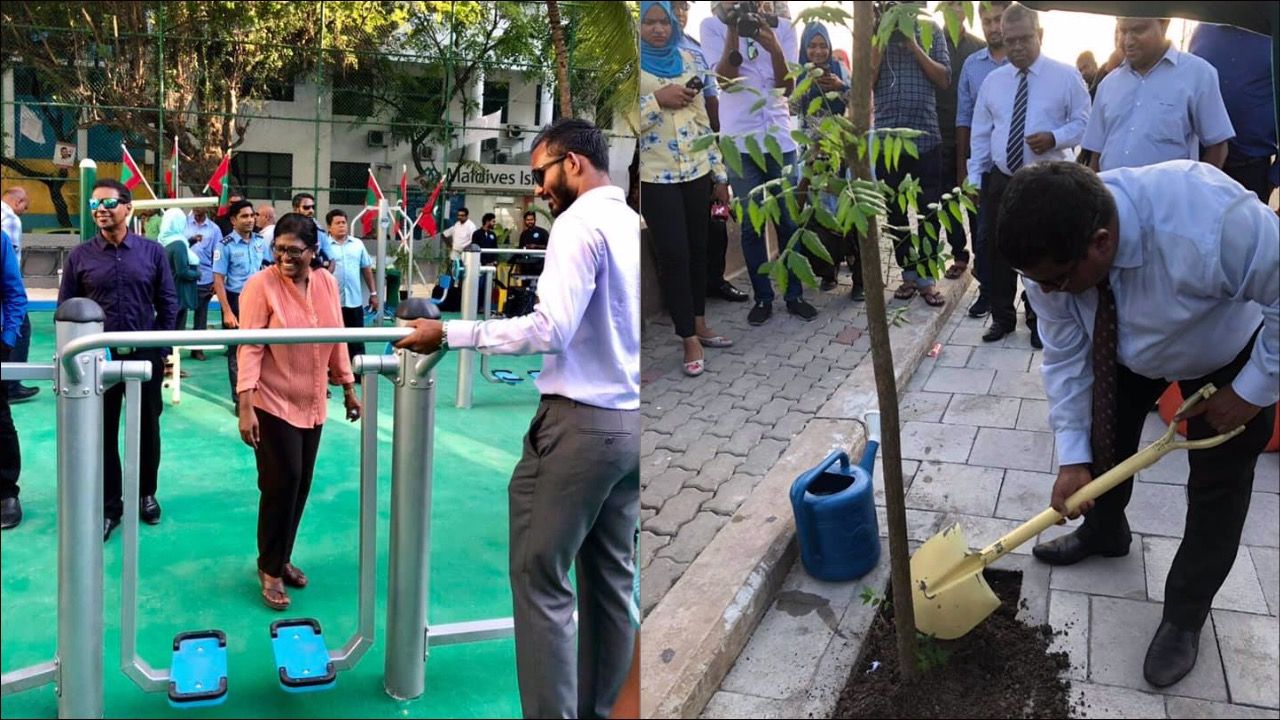
26 Mar 2019, 09:00
The Malé City Council on Sunday started planting trees in the capital’s outer ring road under the government’s RahFehi (Green Island) programme.
Neem and Thai Bungur trees were planted along the southern waterfront from the Malé jail to the swimming track area.
Some 3,000 trees will be planted under the programme, Environment Minister Dr Hussain Rasheed Hassan said at an event held to plant the first batch, pledging to assist the council’s efforts.
The city council hopes to make the congested capital greener and less of a “concrete jungle,” Councillor Shamau Shareef said.
Become a member
Get full access to our archive and personalise your experience.
Already a member?
Discussion
No comments yet. Be the first to share your thoughts!
No comments yet. Be the first to join the conversation!
Join the Conversation
Sign in to share your thoughts under an alias and take part in the discussion. Independent journalism thrives on open, respectful debate — your voice matters.




